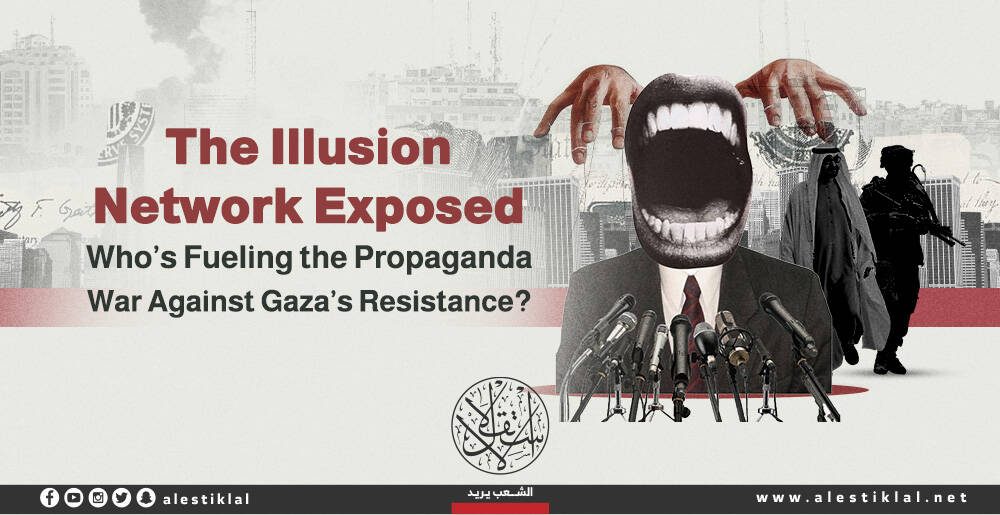Hezbollah’s Financial Lifeline: Why Did Lebanon Ban Dealings with 'al-Qard al-Hasan'?
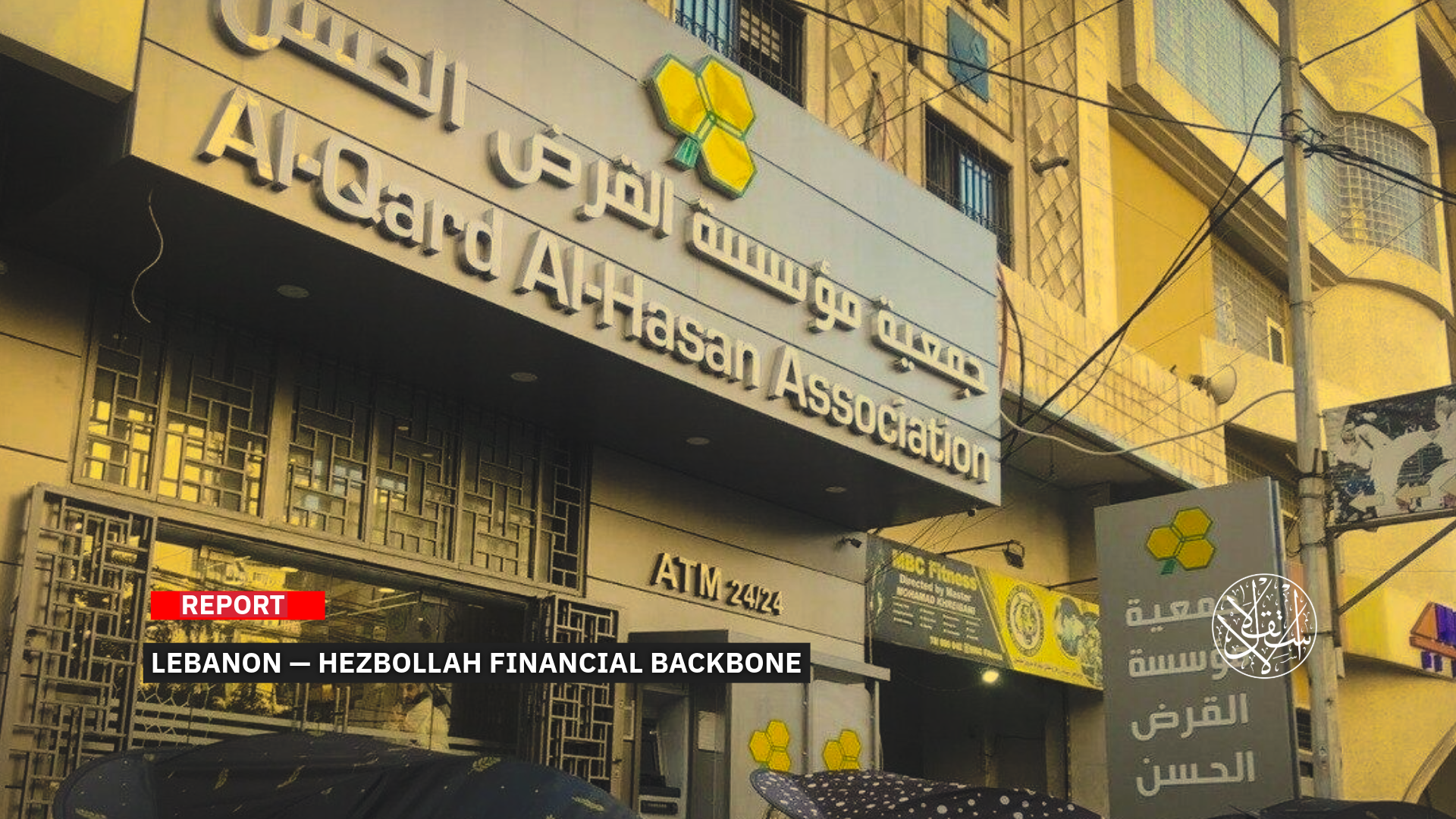
“Weakening Hezbollah’s structure involves more than one front—it means cutting its financial arms and slowly loosening its hold on public support.”
The Lebanese government has taken its first concrete step to tighten the noose around Hezbollah’s financial network by banning the central bank from dealing with institutions that fund the group—starting with al-Qard al-Hasan, considered its financial backbone.
In a statement issued in mid-July 2025, Lebanon’s central bank said banks and financial institutions are prohibited from dealing directly or indirectly, fully or partially, with unlicensed exchange firms or unlicensed associations and entities.
It noted that among these unlicensed bodies are al-Qard al-Hasan Association, Cedars Inter S.A.L., al-Maysar for Finance and Investment, Bayt Al-Mal for Muslims, and other institutions, entities, companies, brigades, and associations listed on international sanctions lists.
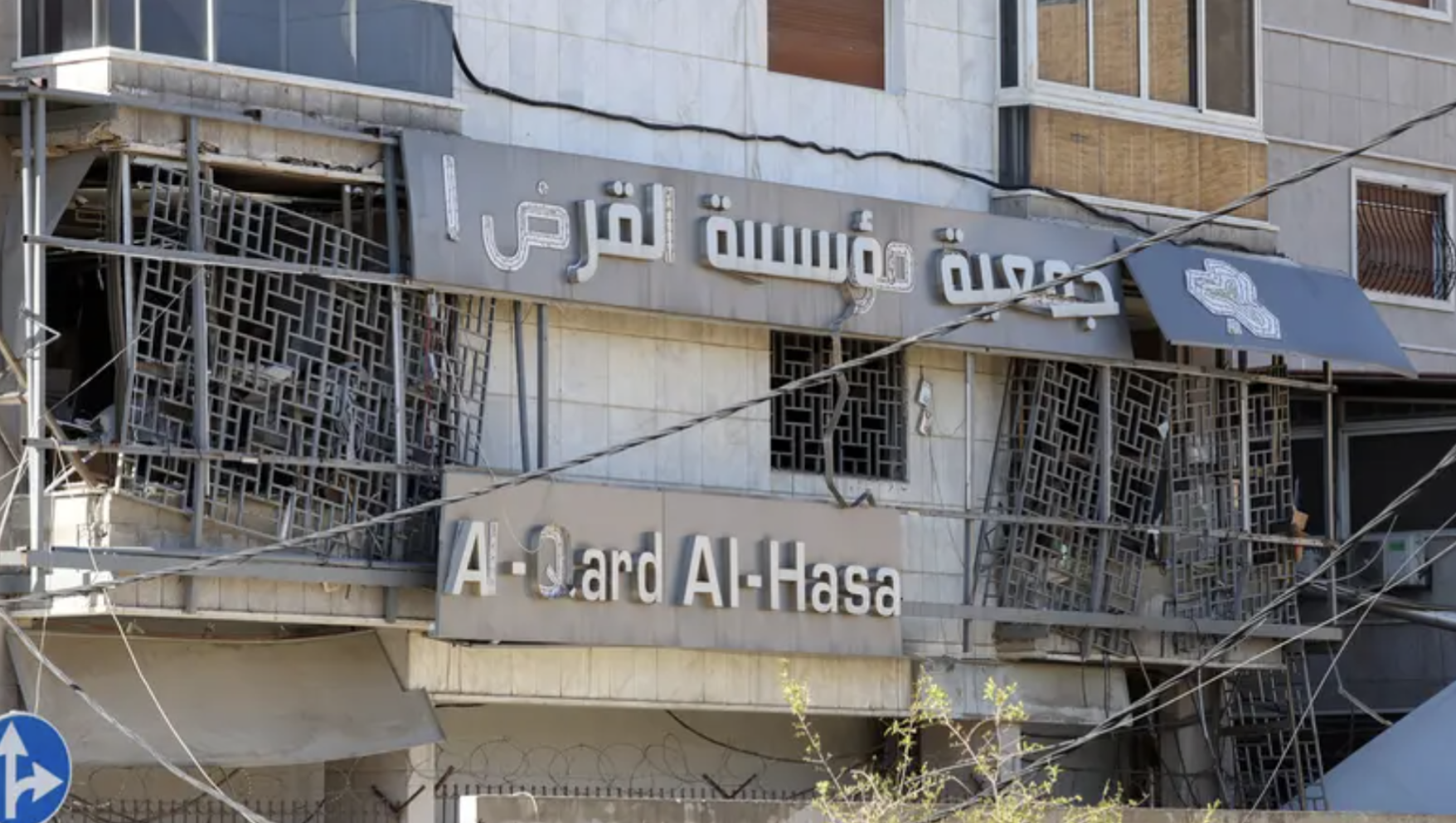
Al-Qard al-Hasan Banned
al-Qard al-Hasan is one of Hezbollah’s most important financial institutions. It doesn’t operate under Lebanon’s monetary and credit laws, having been established in the 1980s as a charitable association.
Its loans and banking services are widely popular, especially among the Shiite community. The institution gained strong public support by offering interest-free loans, in accordance with Islamic law, which prohibits usury. In a country that has suffered a deep economic collapse for over five years—and where traditional banks have largely stopped functioning after freezing people’s deposits—many Lebanese have turned to alternatives like al-Qard al-Hasan.
The association provides small loans to business owners and small-to-medium-sized agricultural or industrial enterprises. In a country plagued by ongoing power outages, it also offers loans to individuals and municipalities to purchase solar panels.
While the majority of its beneficiaries are Shiite Muslims, the ongoing financial crisis has also pushed some Christians and Sunni Muslims to use its services.
For example, al-Qard al-Hasan installed ATMs in its branches in Beirut’s southern suburbs, allowing residents—according to some reports—to receive cash payments and loans from Hezbollah without facing the restrictions found in other banks.
Importantly, this institution is neither a licensed bank nor a financial entity, which means it does not receive funding from Lebanon’s central bank or any other official state body. This gives it the freedom to set its own rules and strike its own deals, helping to strengthen Hezbollah’s parallel financial system and economic independence.
Because of its role, al-Qard al-Hasan has been targeted by Israeli Occupation airstrikes, with its branches hit in several Lebanese regions. On October 21, 2024, the Israeli army stated it had bombed more than 20 targets linked to the association, describing it as a financial arm of Hezbollah that “receives funding from Iran and ultimately helps finance the group.”
Hezbollah was founded in Lebanon in 1982 under the guidance of Iran’s Islamic Revolutionary Guard Corps (IRGC). Since then, Iran has supplied it with weapons and funding, turning the group into a powerful force and a major symbol of Iran’s expanding influence in Lebanon.
The group’s longtime leader, Hassan Nasrallah—who was killed in an Israeli Occupation strike on September 27, 2024—once openly declared on June 24, 2016 that the party’s budget, salaries, expenses, food, drink, weapons, and rockets all come from the Islamic Republic of Iran.
In the aftermath of Hezbollah’s weakened performance during the war on Gaza, the Lebanese government has stepped up monitoring and restrictions on the group’s external funding sources, especially those coming from Iran.
More recently, international voices have called on Beirut to dismantle Hezbollah’s financial networks as a condition for receiving global aid, rebuilding efforts, and reviving an economy that has been in freefall since 2019—further strained by the latest Israeli assault on Lebanon.
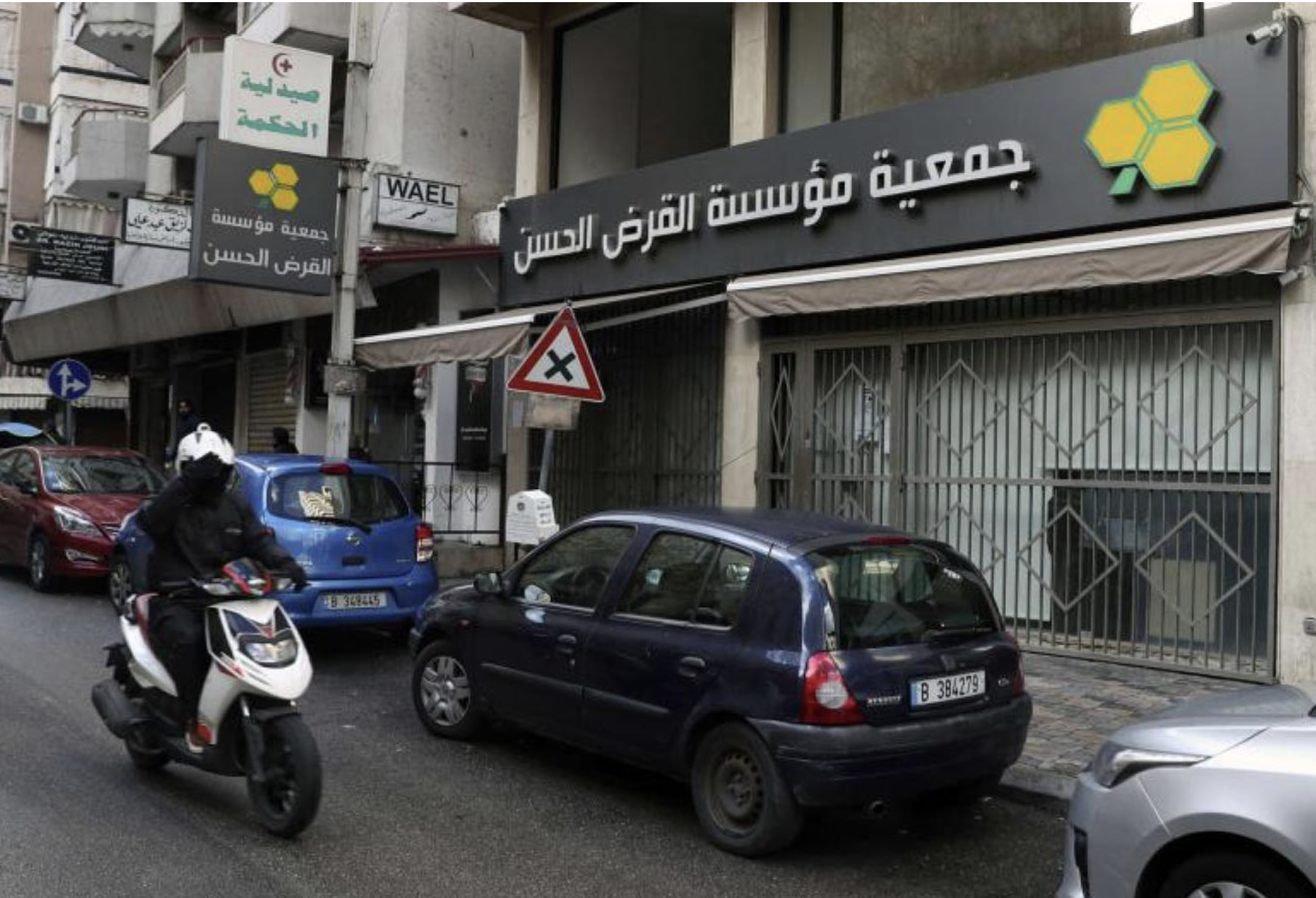
Tightening Conditions
Before Lebanon’s ban on al-Qard al-Hasan, the U.S. Treasury Department imposed a new set of sanctions on July 3, 2025, targeting seven senior individuals and one entity linked to the same organization. The U.S. accused them of “facilitating Hezbollah’s ability to move funds through Lebanon’s financial system, despite years of sanctions against the group.”
Commenting on the matter, U.S. State Department spokesperson Tammy Bruce stated that the U.S. envoy to Syria, Thomas Barrack, has made it clear that halting the flow of money to Hezbollah—including through al-Qard al-Hasan—is a top U.S. priority.
Bruce added in a press statement on July 17 that the U.S. welcomes Lebanon’s recent steps and sees them as a move in the right direction, but more work needs to be done. The Lebanese government must abandon the claim that al-Qard al-Hasan is a non-governmental organization under Lebanese law, when in reality it operates as a financial institution that Hezbollah uses to undermine international sanctions and harm Lebanon’s formal economy, according to Bruce.
In response, al-Qard al-Hasan issued a statement on July 19 criticizing the Lebanese central bank’s directive prohibiting financial institutions from dealing with it, calling it part of a “systematic political campaign driven by domestic and international forces aligned with U.S. agendas aimed at strangling the resistance’s support base and economically stifling institutions associated with it.”
“The Lebanese state now has to prove how serious it is about confronting Hezbollah’s weapons and its sources of funding,” Lebanese journalist Samir Assi told Al-Estikla.
“Weakening Hezbollah’s structure involves multiple dimensions, including cutting its financial arms and gradually disconnecting its support base—especially since al-Qard al-Hasan was offering small loans between $100 and $3,000 to the group’s supporters.”
“al-Qard al-Hasan provides financial services outside the formal banking system. Its popularity surged after Lebanon’s economic collapse and the disappearance of depositors’ money from traditional banks, which have lost the public’s trust,” he added.
Following the ban, Assi said, many fear the enforcement of Article 200 of the Monetary and Credit Law, which criminalizes any individual or institution offering loans without a license from the Central Bank of Lebanon.
“The next step would be to shut down al-Qard al-Hasan’s branches entirely,” Assi said.
So far, the central bank has only prohibited licensed banks, money exchange companies, remittance firms, and financial institutions from dealing with the organization, citing its designation under U.S. sanctions and concerns that funds originating from it could “contaminate” bank assets and jeopardize relationships with international correspondent banks.
“al-Qard al-Hasan helps individuals linked to Hezbollah and Iran bypass U.S. sanctions,” the journalist added.
Therefore, Assi suggested the Lebanese government now faces a clear choice: to formalize the institution by integrating it into the national banking system, which would increase transparency and ensure compliance with financial regulations. This move would protect the interests of tens of thousands of Lebanese who rely on the organization’s services—but it may not sit well with the U.S. or Hezbollah’s domestic opponents, who ultimately want to see it shut down.
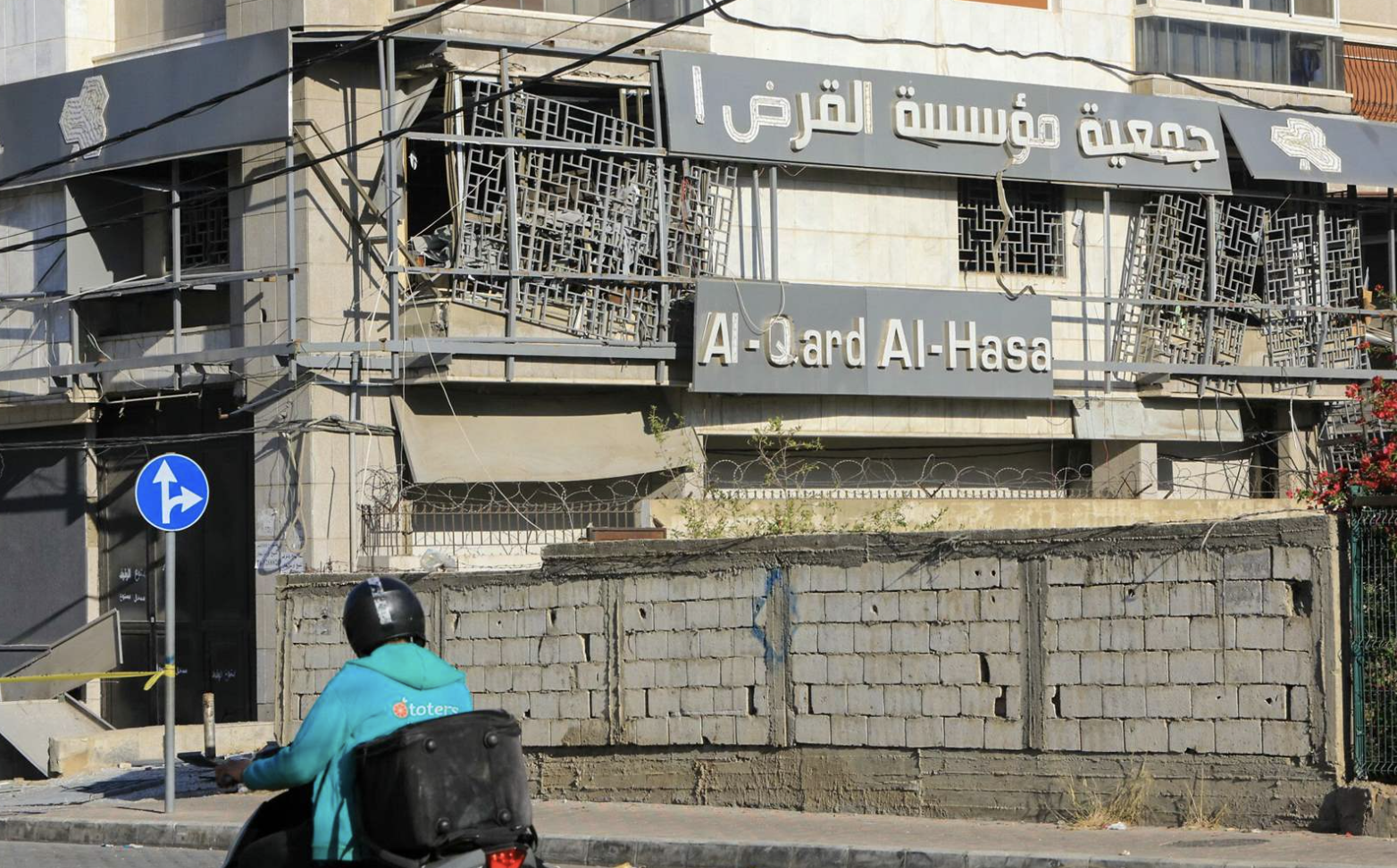
Choking Off the Cash
In May 2025, Lebanese Forces MP Razi el-Hage—one of Hezbollah’s domestic rivals—called on the government to revoke al-Qard al-Hasan’s license, citing violations of association laws and unregulated lending practices. His demand reflects growing momentum inside Lebanon to clamp down on Hezbollah’s financial operations.
Since early 2025, Lebanese authorities have tightened airport security, especially for passengers arriving from Iran, Iraq, Africa, and other regions. Their mission: to intercept undeclared cash allegedly linked to Hezbollah.
On February 28, 2025, Lebanese officials announced they had seized $2.5 million in cash at Beirut International Airport from a man arriving on a Pegasus Airlines flight from Turkiye. The suspect, Mohammad Aref Hussein, was detained and investigated.
Just days later, Lebanon’s Supreme Islamic Shiite Council—a body closely aligned with Hezbollah and Amal—claimed the confiscated funds were legitimate donations from overseas charities, demanding their release. The Council, established in 1969, remains a powerful institution within Lebanon’s Shiite community and often acts in concert with the country’s dominant Shiite political blocs.











